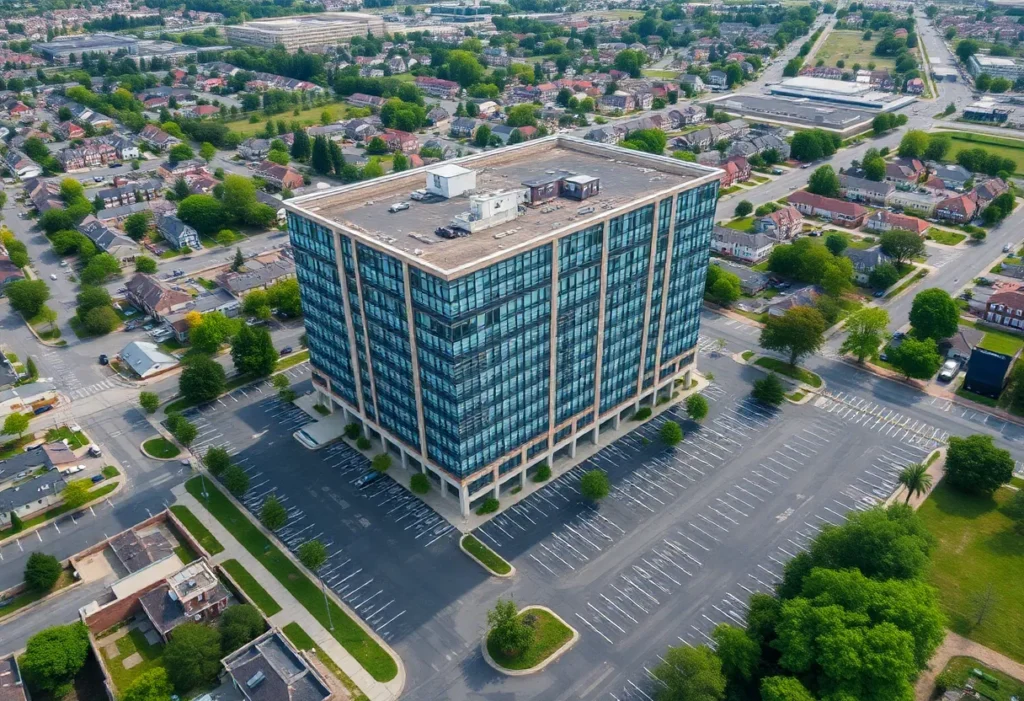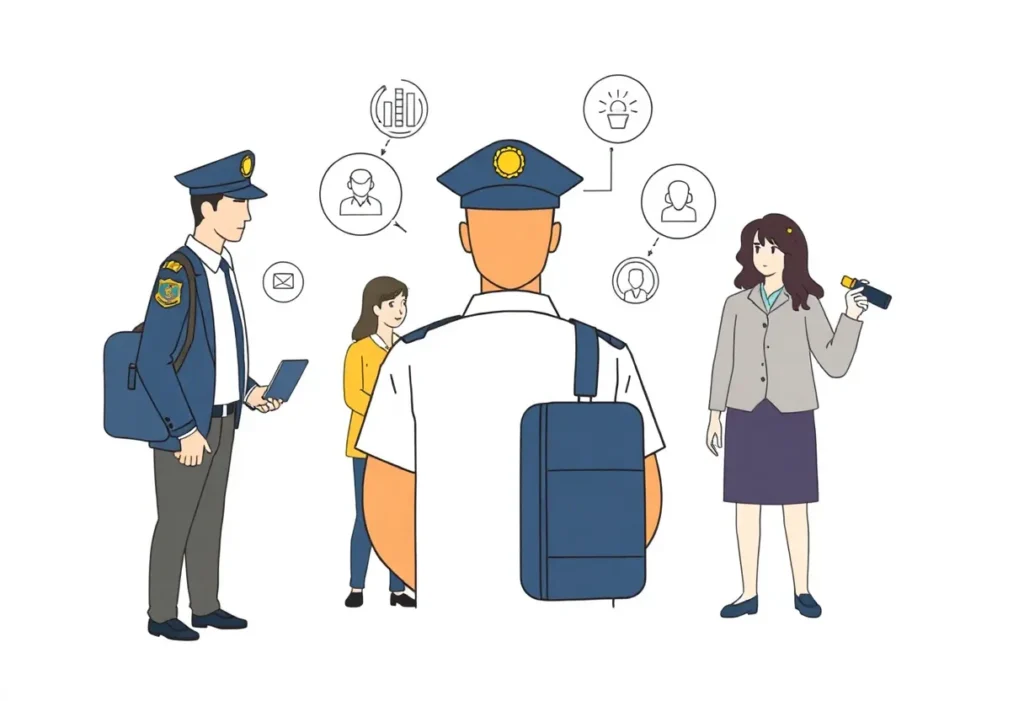Greenville, SC News
TOP GREENVILLE STORIES
BREAKING NEWS
Ellen Weaver Running for Re-election as Education Superintendent
Greenville, South Carolina, October 22, 2025 News Summary Ellen Weaver has announced her re-election campaign for the position of South Carolina’s Superintendent of Education. Weaver, who took office in 2023, highlights...
Greenville City Faces Contentious Council Election
Greenville, SC, October 21, 2025 News Summary Incumbent Lillian Brock Flemming faces challenger Mike Kilgore in an election slated for November 4. Issues of representation, gentrification, and urban development are central...
Candidates Clash Over Growth Issues in Greenville City Council Race
Greenville, October 21, 2025 News Summary The upcoming City Council race in Greenville highlights the differing perspectives of candidates Matt Alexander and Tina Belge on growth challenges. Alexander advocates for minor...
Massage Parlor Owner Charged with Operating a Brothel in Greenville
Greenville, SC, October 18, 2025 News Summary Yujie Chen, the owner of Amazing Massage in Greenville, has been charged with operating a brothel following an investigation by the Greenville Police Department....
Greenville Police Investigate Human Trafficking at Amazing Massage
Greenville, South Carolina, October 17, 2025 News Summary The Greenville Police Department is investigating Amazing Massage on North Pleasantburg Drive in connection with a human trafficking inquiry. This search follows previous...
Greenville Police Investigate Human Trafficking at Amazing Massage
Greenville, October 17, 2025 News Summary Greenville police executed a search warrant at Amazing Massage as part of an ongoing human trafficking investigation. The operation has drawn a mix of law...
Greenville Police Conduct Search Warrant at Amazing Massage
Greenville, October 17, 2025 News Summary The Greenville Police Department executed a search warrant at Amazing Massage on North Pleasantburg Drive as part of an investigation into human trafficking. Various officials,...
Greenville, South Carolina Faces Ongoing Recovery After Hurricane Helene
Greenville, South Carolina, October 14, 2025 News Summary One year after Hurricane Helene struck South Carolina, the recovery efforts in Greenville continue to struggle with significant challenges. The hurricane caused numerous...
Innovative Research Initiatives Drive Progress in South Carolina Colleges
South Carolina, October 14, 2025 News Summary South Carolina’s colleges are at the forefront of innovation and sustainability, with research initiatives advancing cancer treatments, genetic studies, eco-friendly agriculture, and cultural preservation....
BUSINESS
Greenville Utilities Commission Achieves Financial Excellence
Greenville, NC, October 27, 2025 News Summary The Greenville Utilities Commission (GUC) has garnered multiple awards for financial excellence from the Government Finance Officers Association. Recognitions include the 16th consecutive Certificate...
South Carolina Unveils Second Volume of Francis Marion Papers
South Carolina, October 27, 2025 News Summary The South Carolina Battleground Preservation Trust has released the second volume of the Francis Marion Papers, featuring documents from 1781, highlighting key Revolutionary War...
Mediterranean-Style Home Listed in West Columbia
News Summary A distinctive Mediterranean-style residence with 5,700 square feet of living space is on the market for $799,990 in West Columbia’s Quail Hollow neighborhood. Set on nearly an acre,...
Carmen Adriana Vlad Expands Accounting and Logistics Firms in SC
Mauldin, South Carolina, October 26, 2025 News Summary Carmen Adriana Vlad, founder of Competent Accounting LLC and Competent Logistics LLC, is making strides in the U.S. with her firms serving over...
Spartanburg County Reports Increase in Measles Cases Amid Outbreak
Spartanburg County, October 26, 2025 News Summary The South Carolina Department of Public Health confirms two new measles cases in Spartanburg County, bringing the total in the state to 25 this...
Greenville Completes $48.5 Million BUILD Improvement Project
Greenville, October 26, 2025 News Summary Greenville has completed its $48.5 million BUILD improvement project, which was initiated to enhance transportation and connectivity in the city. The project includes a newly...
Luxurious Mediterranean-Style Home Listed at Thornblade Club
Greer, October 26, 2025 News Summary A stunning Mediterranean-style home has been listed for $2.7 million on the Thornblade Club golf course in Greer, South Carolina. The residence boasts over 8,000...
Spinx Company Acquires Buck Mickel Center from Greenville Tech
News Summary The Spinx Company has completed the acquisition of the Buck Mickel Center from Greenville Technical College for $5.25 million. The property, covering 4.76 acres, features a multistory office...
Cherokee County Land Prices Surge Ahead of Casino Development
Cherokee County, SC, October 25, 2025 News Summary Land prices in Cherokee County, SC, are skyrocketing due to the upcoming Catawba Two Kings Casino Resort. Anticipated economic growth is already driving...
Events/What's Happening
South Carolina Unveils Second Volume of Francis Marion Papers
South Carolina, October 27, 2025 News Summary The South Carolina Battleground Preservation Trust has released the second volume of the Francis Marion Papers, featuring documents from 1781, highlighting key Revolutionary War...
Remembering Ladson Thomson Gallivan: A Community Legacy
Greenville, South Carolina, October 27, 2025 News Summary Ladson Thomson Gallivan, a cherished figure in Greenville, South Carolina, passed away after a brave fight against NETs Carcinoma. Known for his humor...
Spartanburg County Reports Increase in Measles Cases Amid Outbreak
Spartanburg County, October 26, 2025 News Summary The South Carolina Department of Public Health confirms two new measles cases in Spartanburg County, bringing the total in the state to 25 this...
Greenville Completes $48.5 Million BUILD Improvement Project
Greenville, October 26, 2025 News Summary Greenville has completed its $48.5 million BUILD improvement project, which was initiated to enhance transportation and connectivity in the city. The project includes a newly...
Explore the Charms of Brevard, NC This Fall
Brevard, NC, October 26, 2025 News Summary Brevard, North Carolina, also known as the ‘Land of Waterfalls’, offers a fantastic fall experience with outdoor adventures, local dining, and family-friendly events like...
Nonprofits Showcase Innovative Funding Strategies at RevUpGVL
Greenville, October 26, 2025 News Summary Five nonprofits in Greenville are set to present their innovative funding strategies at the RevUpGVL pitch event on November 5. This initiative supports organizations in...
Saluda Grade Trail Project Advances with Community Engagement
Saluda, South Carolina, October 25, 2025 News Summary The Saluda Grade Trail project, aiming to develop a 31-mile multi-use trail from a historic railroad line, is entering a new phase of...
Greenville Triumph Launches 2026 Season Ticket Deposits
Mauldin, October 25, 2025 News Summary The Greenville Triumph Soccer Club has initiated a season ticket deposit campaign for the upcoming season, allowing fans to secure their spots at the new...
Lee Bright Wins GOP Primary in South Carolina Senate Race
Spartanburg, South Carolina, October 23, 2025 News Summary Lee Bright has won the GOP primary for South Carolina Senate District 12, achieving approximately 51% of the votes cast. The special elections...
CRIME
Massage Parlor Owner Charged with Operating a Brothel in Greenville
Greenville, SC, October 18, 2025 News Summary Yujie Chen, the owner of Amazing Massage in Greenville, has been charged with operating a brothel following an investigation by the Greenville Police Department....
Greenville Police Investigate Human Trafficking at Amazing Massage
Greenville, South Carolina, October 17, 2025 News Summary The Greenville Police Department is investigating Amazing Massage on North Pleasantburg Drive in connection with a human trafficking inquiry. This search follows previous...
Greenville Police Investigate Human Trafficking at Amazing Massage
Greenville, October 17, 2025 News Summary Greenville police executed a search warrant at Amazing Massage as part of an ongoing human trafficking investigation. The operation has drawn a mix of law...
Greenville Police Conduct Search Warrant at Amazing Massage
Greenville, October 17, 2025 News Summary The Greenville Police Department executed a search warrant at Amazing Massage on North Pleasantburg Drive as part of an investigation into human trafficking. Various officials,...
Greenville County Implements New Oversight for Sentinel Offender Services
Greenville County, October 5, 2025 News Summary Greenville County is enhancing oversight of Sentinel Offender Services after criticisms surrounding employee misconduct and communication failures. A new ‘Quality Surveillance Assurance Plan’ will...
Health Violations Found at Greenville County Restaurants
Greenville County, South Carolina, October 4, 2025 News Summary Recent inspections by the South Carolina Department of Agriculture in Greenville County have uncovered several health violations across numerous restaurants. Of the...
Greenville County Investigates Domestic Homicide Case
Greenville, October 4, 2025 News Summary The Greenville County Coroner’s Office is looking into a domestic shooting incident resulting in the death of 29-year-old Kenoshia Yvonne Wheeler. Following a heated argument,...
Investigation Underway at Greenville Middle Academy Amid Threats
Greenville, October 2, 2025 News Summary An investigation is being conducted at Greenville Middle Academy following reports of potential threats on social media. Although there is currently no evidence of a...
Lululemon Burglary in Greenville: Suspect Arrested
Greenville, October 2, 2025 News Summary A burglary at a Lululemon store in Greenville resulted in the theft of merchandise worth $5,687 and significant damages totaling $93,538. Suspect Donte Glenn was...
POLITICS
Ellen Weaver Running for Re-election as Education Superintendent
Greenville, South Carolina, October 22, 2025 News Summary Ellen Weaver has announced her re-election campaign for the position of South Carolina’s Superintendent of Education. Weaver, who took office in 2023, highlights...
Greenville City Faces Contentious Council Election
Greenville, SC, October 21, 2025 News Summary Incumbent Lillian Brock Flemming faces challenger Mike Kilgore in an election slated for November 4. Issues of representation, gentrification, and urban development are central...
Candidates Clash Over Growth Issues in Greenville City Council Race
Greenville, October 21, 2025 News Summary The upcoming City Council race in Greenville highlights the differing perspectives of candidates Matt Alexander and Tina Belge on growth challenges. Alexander advocates for minor...
Debate Ignites Over Oversized American Flag in Greenville
Greenville, NC, October 5, 2025 News Summary The installation of a massive American flag by Camping World in Greenville has led to heated discussions among City Council candidates about patriotism versus...
Tragic Loss at Anderson University Following Car Crash
Anderson, South Carolina, October 1, 2025 News Summary Anderson University mourns the loss of 19-year-old Shane Roberts McVey from Maryland, who died in a two-vehicle accident on White Horse Road. The...
Governor McMaster Declares State of Emergency Ahead of Tropical Disturbance
South Carolina, September 27, 2025 News Summary South Carolina Governor Henry McMaster has declared a state of emergency as Tropical Disturbance 94L approaches the state, expected to bring strong winds, storm...
Grumpy Kitten Paul Captivates Hearts on Social Media
Greenville, South Carolina, September 19, 2025 News Summary Paul, a kitten with a unique unimpressed expression, became an internet sensation after a humorous viral post by the Greenville Humane Society. Rescued...
Termination of Greenville County Employees Over Charlie Kirk Posts
Greenville County, South Carolina, September 19, 2025 News Summary In Greenville County, South Carolina, three employees were fired for making inappropriate social media posts regarding the death of conservative activist Charlie...
Greenville NAACP Raises Concerns Over TPUSA Meeting
Greenville, SC, September 18, 2025 News Summary The Greenville County NAACP has expressed concerns about an interest meeting held by Turning Point USA (TPUSA) at J.L. Mann High School during school...
SPORTS
Greenville Triumph Launches 2026 Season Ticket Deposits
Mauldin, October 25, 2025 News Summary The Greenville Triumph Soccer Club has initiated a season ticket deposit campaign for the upcoming season, allowing fans to secure their spots at the new...
BMW Charity Pro-Am Tournament Announced
Greenville SC, October 17, 2025 News Summary The BMW Charity Pro-Am is set to take place from June 5-8, featuring celebrity participants and charitable events. Last year, the tournament raised over...
Greenville Strengthens Community Ties with New Sports Facilities
Greenville, September 30, 2025 News Summary Greenville is enhancing its sports culture by building new facilities and forming partnerships among its four professional sports teams: the Drive, Triumph, Liberty, and Swamp...
Construction Starts on Multi-Use Stadium in Mauldin
Mauldin, September 24, 2025 News Summary Construction has officially commenced on a new multi-use stadium at BridgeWay Station in Mauldin, which will be home to the Greenville Triumph SC and Greenville...
Cyclists Embark on Challenge to Conquer Cancer Charity Ride
Greenville, South Carolina, September 17, 2025 News Summary A courageous group of cyclists from Upstate South Carolina began the annual Challenge to Conquer Cancer charity bike ride, covering over 1,000 miles...
Gaffney High School Football Team to Face Greenville High School
Gaffney, South Carolina, September 7, 2025 News Summary The Gaffney High School football team is gearing up to compete against Greenville High School on September 5. Kickoff is scheduled for 7...
High School Football Season Kicks Off in South Carolina
Greenville, South Carolina, August 31, 2025 News Summary The high school football season in South Carolina has started with many teams vying for victory. Week 1 showcased key matchups, with Gaffney...
New Gathering Spots for Gamecock Fans in Greenville
Greenville, August 28, 2025 News Summary Greenville is enhancing the fan experience for Gamecock supporters by introducing designated gathering spots ahead of the football season and SEC Women’s Basketball Tournament. Venues...
Jackie Bradley Jr. Returns for Greenville Drive’s Anniversary Celebration
Greenville, August 10, 2025 News Summary Jackie Bradley Jr. is set to return to the Greenville Drive for their 20th Anniversary Celebration on August 8. The event will include him throwing...















































